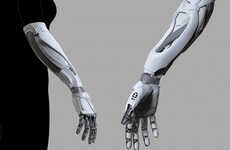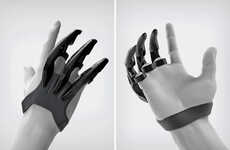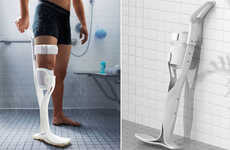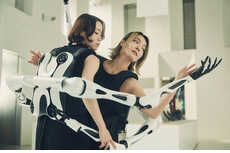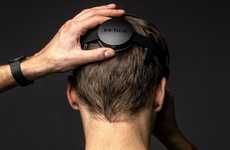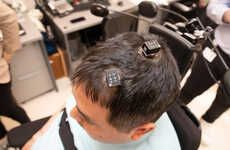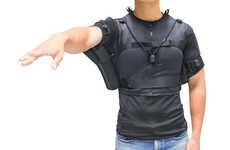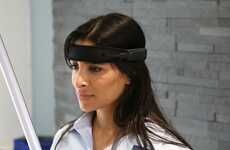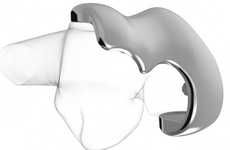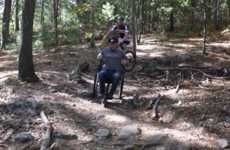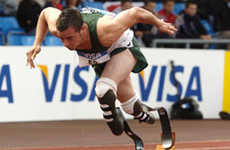
The Modular Prosthetic Limb is the Stuff of Science Fiction
Meghan Young — October 27, 2011 — Lifestyle
Cyborgs and bionic individuals may not be the stuff of science fiction anymore thanks to the recently developed Modular Prosthetic Limb. That is because the Modular Prosthetic Limb is controllable by the wearer's mind. Although there have been some incredible strides taken in prosthetic technology, this has to be one of the most exciting and impressive leaps to date.
More than a simple cosmetic replacement, the Modular Prosthetic Limb can accurately detect vibration, temperature, contact with objects and degree of pressure and boasts a 27-degree range of motion.
Funded by DARPA as part of its Revolutionizing Prosthetics program, the Modular Prosthetic Limb has been developed by scientists and researchers at the University of Pittsburgh Medical Center and the University of Pittsburgh School of Medicine in collaboration with Johns Hopkins University Applied Physics Laboratory.
More than a simple cosmetic replacement, the Modular Prosthetic Limb can accurately detect vibration, temperature, contact with objects and degree of pressure and boasts a 27-degree range of motion.
Funded by DARPA as part of its Revolutionizing Prosthetics program, the Modular Prosthetic Limb has been developed by scientists and researchers at the University of Pittsburgh Medical Center and the University of Pittsburgh School of Medicine in collaboration with Johns Hopkins University Applied Physics Laboratory.
Trend Themes
1. Mind-controlled Prosthetics - Disruptive innovation opportunity: Develop advanced mind-control technology to enhance the functionality and usability of prosthetic limbs.
2. Bionic Individuals - Disruptive innovation opportunity: Create fully integrated bionic systems that seamlessly merge with the human body, enabling enhanced physical capabilities.
3. Revolutionizing Prosthetics - Disruptive innovation opportunity: Pioneer the development of revolutionary prosthetic technologies that have a significant impact on the lives of amputees and individuals with physical disabilities.
Industry Implications
1. Medical Devices - Disruptive innovation opportunity: Invent novel medical devices that combine robotics, AI, and neurotechnology to enhance patient rehabilitation and quality of life.
2. Neuroscience - Disruptive innovation opportunity: Explore the frontiers of neuroscience to unlock the full potential of mind-controlled prosthetics and revolutionize the field of neuroprosthetics.
3. Biotechnology - Disruptive innovation opportunity: Harness cutting-edge biotechnology to develop advanced materials and interfaces that improve the integration and performance of prosthetic limbs.
4.3
Score
Popularity
Activity
Freshness


